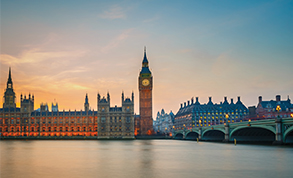Election watch – week three
At least one poll is showing the NHS, rather than Brexit, is the most important election issue. And the main parties’ leaders clashed over the NHS during their TV debate. Mr Corybn alleged Mr Johnson had held a series of secret meetings where proposals to ‘open up our NHS markets to American companies’ were discussed.
The prime minister replied that the claim was ‘an absolute invention’. He continued: ‘There are no circumstances whatever in which this government, or any Conservative government, will put the NHS on the table in any trade negotiation.’
Labour put the NHS at the heart of its manifesto. As well as reiterating its promises on spending – overall increases averaging 4.3% a year – it added that public sector workers, including those in the NHS, would receive a 5% pay rise in its first year of government. There would be above-inflation awards in the following years. Agenda for Change terms and conditions would be put into law alongside safe staffing limits for all staff. It would invest in staff training and introduce a bursary for nurses, midwives and allied health professionals.
If elected, the Health and Social Care Act 2012 would be scrapped, a joined-up model of community care introduced, with greater funding allocated to close-to-home services, and the internal market abolished.
It said the Conservatives were using the principle of collaboration in the NHS long-term plan to ‘further entrench private sector delivery of healthcare’. Outsourced services would be brought back in-house, with Labour promising its ‘urgent priority is to end NHS privatisation’.
The Labour manifesto also promised additional funding to meet new mental healthcare standards, improve public health and free annual dental check-ups. A national care service for England would be established to provide community-based, person-centred care with free personal care.
An infrastructure plan to bring capital investment in the NHS in England up to the international average would be developed. Decisions on capital investment would be balanced between regions and transparent. The confirmed hospital rebuilds announced earlier this year by the Conservatives would be completed and there would be additional investment in primary care surgeries, artificial intelligence and state-of-the-art medical equipment, it said. Over time, it would ‘take back’ private finance initiative contracts.
In its manifesto, the Liberal Democrats promised to boost NHS and social care funding in England by £35bn over the next five years – £7bn a year paid for by increasing income tax by 1%. Additionally, a £10bn capital fund would be set up to upgrade buildings, equipment and ambulances.
It promised that a Lib Dem government would tackle staff shortages within five years through retaining freedom of movement for European Union citizens, reinstating nursing bursaries and creating a national workforce strategy that matches training places to future needs.
A Lib Dem government would ensure mental healthcare is given ‘the same urgency as physical health’. It would amend the Health and Social Care Act, to make the NHS work in a more efficient and joined-up way, and automatic tendering would be ended.
It warned that Brexit – the party has vowed to remain in the EU if elected – was a serious threat to the sustainability of the NHS, threatening staff recruitment, as well as delays on medicines and diagnostic tests. A trade deal with the United States could lead to greater involvement of US corporations in NHS services and the UK medicines market, it claimed.
In the longer-term, a Liberal Democrat government would commission the development of a dedicated health tax and establish a cross-party health and social care convention on long-term funding. A statutory independent budget monitoring body, similar to the Office for Budget Responsibility, would report every three years on the level of funding needed to provide safe and sustainable health and care. Its ultimate aim is to bring together health, social care and public health, with pooled budgets and supporting integrated care systems.
The Conservative manifesto is not yet published – there are rumours it will be unveiled this weekend – but the party has not remained silent on its health service plans.
Speaking at the CBI conference early in the week, Mr Johnson again committed himself to the NHS and other public services by postponing a planned decrease in corporation tax. This would release £6bn to spend on the nation’s priorities, including the health service, he said.
As part of a range of measures on immigration, the Tories said the international health surcharge would be extended to all overseas workers, including EU citizens, and rise to £625 a year. Currently, those on work, study or family visas incur average annual costs of £625, but individuals only pay a surcharge of £400, the party said. The measure will raise over £500m a year, which can be spent on NHS services, it added.
Reducing access to benefits for immigrants and ending the practice of sending child benefit abroad to support children who do not live in the UK would save an estimated £800m a year by 2024/25, the Conservatives said – ‘money that can be invested in the NHS and supporting vulnerable people’, the party added.
Related content
We are excited to bring you a fun packed Eastern Branch Conference in 2025 over three days.
This event is for those that will benefit from an overview of costing in the NHS or those new to costing and will cover why we cost and the processes.